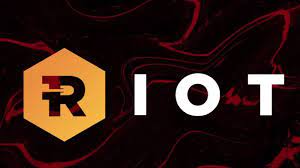HUT 8?S ONTARIO BITCOIN MINING OPERATION HALTED AMIDST POWER DISPUTES
The recent power dispute that halted HUT 8's Ontario Bitcoin mining operation sheds light on the challenges faced by cryptocurrency miners.

Cryptocurrency mining has been making headlines for years, with Bitcoin leading the pack as the most prominent digital currency. One of the essential aspects of cryptocurrency mining is the operation of powerful machines and software that solve complex mathematical problems to validate and secure transactions on the blockchain network. HUT 8, a major player in the cryptocurrency mining industry, recently faced a significant setback in its Ontario Bitcoin mining operation due to power disputes. In this blog post, we will explore the details of this incident and delve into the world of cryptocurrency mining, including the use of crypto mining machines, software, sites, calculators, apps, rigs, and miners.
The HUT 8 Ontario Bitcoin Mining Operation
HUT 8, a Canadian cryptocurrency mining company, has been operating in Ontario for quite some time. The company is known for its large-scale mining operations and its contribution to the security and decentralization of the Bitcoin network. However, recent events have cast a shadow on their operations.
The power dispute in question revolves around the allocation of electricity resources. Cryptocurrency mining operations, particularly those involving Bitcoin, are power-hungry endeavors. The specialized hardware and machines used in mining require a significant amount of electricity to function optimally. In the case of HUT 8, the dispute arose when local authorities raised concerns about the excessive power consumption of their mining facility, leading to a temporary halt in their operations.
Understanding Cryptocurrency Mining
To comprehend the impact of the power dispute on HUT 8's mining operation, it's crucial to understand the fundamentals of cryptocurrency mining.
- Crypto Mining Machines: Cryptocurrency mining machines, often referred to as mining hardware or miners, are specialized computers designed solely for the purpose of mining digital currencies. These machines are equipped with powerful processors (ASICs) that can perform complex mathematical calculations required for mining.
- Crypto Mining Software: Crypto mining software plays a vital role in managing and controlling mining hardware. It connects miners to the blockchain network, facilitates communication with the mining pool, and monitors the mining process. Some popular crypto mining software includes CGMiner, BFGMiner, and NiceHash.
- Crypto Mining Sites: Crypto mining sites are physical locations where mining operations are conducted. These sites are strategically chosen based on factors such as energy costs, climate, and infrastructure availability. HUT 8's Ontario operation is an example of such a site.
- Crypto Mining Calculator: A crypto mining calculator helps miners estimate their potential profits and costs. Miners can input variables such as hardware hash rate, power consumption, electricity cost, and current crypto mining software prices to determine their mining profitability.
- Bitcoins Mining App: Mining apps are mobile applications that allow users to monitor their mining operations remotely. These apps provide real-time updates on mining performance, earnings, and hardware status.
Cryptocurrency Mining Rig and Cryptocoin Mining
- Cryptocoin Mining Rig: A cryptocurrency mining rig is a setup that includes multiple mining machines working in synchronization. Miners often build custom rigs with several GPUs or ASICs to increase their mining power and potential earnings.
- Cryptocurrency Mining: Cryptocurrency mining involves the process of validating and adding transactions to the blockchain ledger. Miners compete to solve complex mathematical puzzles, and the first one to succeed is rewarded with newly created cryptocurrency coins, such as Bitcoin.
Crypto Mining Apps and Miners for Crypto
- Crypto Mining Apps: Mobile crypto mining apps have gained popularity among smartphone users. These apps allow users to participate in mining pools or cloud mining services directly from their mobile devices. However, it's important to note that mobile mining is typically less profitable than using dedicated mining hardware.
- Miners for Crypto: Miners, also known as cryptocurrency miners, are individuals or entities that engage in the process of cryptocurrency mining. They invest in mining hardware, software, and infrastructure to secure the network, validate transactions, and earn rewards in the form of newly created coins and transaction fees.
The Impact of Power Disputes on Crypto Mining
The recent power dispute that halted HUT 8's Ontario Bitcoin mining operation sheds light on the challenges faced by cryptocurrency miners. Power consumption is a significant concern, and disputes with local authorities can lead to interruptions in mining activities. In such cases, miners must find ways to address these issues, whether by negotiating power allocation, relocating operations, or implementing energy-efficient mining practices.
The Future of Cryptocurrency Mining
The cryptocurrency mining industry is continually evolving. Miners are constantly seeking ways to increase efficiency, reduce environmental impact, and navigate regulatory challenges. Innovations in mining hardware, software, and renewable energy sources are shaping the future of cryptocurrency mining.
HUT 8's Ontario Bitcoin mining operation being halted due to power disputes serves as a reminder of the complexities and challenges associated with bitcoins mining app. It requires a combination of advanced crypto mining machines, software, sites, calculators, apps, rigs, and miners to be successful. As the cryptocurrency industry continues to grow and adapt, miners must remain vigilant and adaptable to ensure the longevity of their operations. Power disputes, like the one experienced by HUT 8, highlight the need for collaboration between miners and local authorities to find sustainable solutions that benefit both parties and the broader crypto ecosystem.
What's Your Reaction?
















